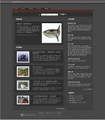Projects
- Taiwan Digital Archives Expansion Project
- Research and Development for Digital Archives and e-Learning Technologies Project
- Core Platforms for Digital Contents Project
- Academic and Social Promotions and Applications for Digital Archives and e-Learning Project
- Industrial Development and Promotion of Digital Archives and e-Learning Project
- Digital Education and e-Learning Project
- e-Learning for Chinese Language Project
- International Collaboration and Promotion of Taiwan e-Learning and Digital Archives Project
Preface
Eminent philosopher Francis Bacon (1561-1626) once said, "Knowledge is power." In the twenty-first century when there is an explosion of information and the knowledge economy holds sway, how do individuals learn, appreciate and apply knowledge and how do countries help their citizens to achieve these objectives, to promote the development of culture, and to pass on the legacy of human knowledge and civilization? These are the issues that countries around the world should address.
Under the "National Digital Archives Program" initiated in 2002, various kinds of archives kept in Academia Sinica, the National Palace Museum, National Taiwan University, and many other public and private cultural institutions in Taiwan have been digitized. In 2003, the "National Science and Technology Program for e-Learning" was launched. These two national programs have successfully integrated development of various fields in science, technology, humanities and economy. Through the implementation of these programs, experts in different fields were brought together to exchange ideas and to consider how to create, organize and disseminate knowledge. The results of digitization have not only increased accessibility to these knowledge resources for scholars, but also allowed the general public to transcend barriers of time and space in appreciating and utilizing knowledge, thereby creating more fun and happiness in their lives.
This cultural endeavor requires an across-the-board thinking and the participation of specialists from various fields. Beginning on January 1, 2008 the two aforementioned programs were integrated into the "Taiwan e-Learning and Digital Archives Program." It is hoped that with further efforts from interdisciplinary experts, more forward-looking thinking and execution capability will be brought to bear.
With the achievements of the "Taiwan e-Learning and Digital Archives Program" you can feast your eyes on the treasures of five thousand years of Chinese civilization and also take a peep at Taiwan's ecology and history. You can feel the amazing industrial power when contents of domain knowledge and science and technology combine. You can also appreciate the creativity of young people as they utilize knowledge, culture and technology, and personally experience the learning revolution that information technology development has brought forth.
We hope through our efforts today we can bring to light the cultural heritage and knowledge that had been locked away in academic institutions in the past and make them available and accessible to more people. Moreover, we hope that these well-cultivated knowledge crystals accumulated by human civilization can be preserved and passed on to future generations.






